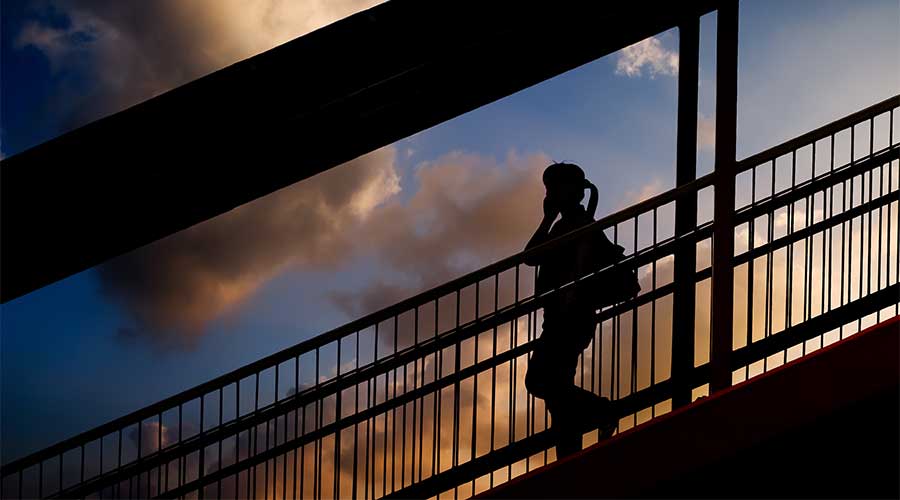by Mackenna Moralez, Associate Editor — Long before women enter the workforce, they are taught about safety. Don’t walk alone at night; if you wear your hair up, it’s actually easier to grab; lock your doors immediately when you get in your car; pepper spray is a good thing to carry; pay attention to your surroundings. While the list goes on and on, only women are familiar with what is on it.
A tweet of a woman explaining why she chooses to take elevators over stairs due to the lack of cameras in stairwells to her male co-worker recently went viral, prompting the discussion on safety within the workplace. This conversation is especially important for industries that are traditionally dominated by men like facilities management.
It is important that women feel safe within their workplace. According to the report The Facts Behind the #metoo Movement, 38 percent of women said that they had been sexually harassed at work, with 13 percent of respondents saying that it was the place they were harassed the most. For many women employees, feeling safe — in both a physical and psychological stance — is a major concern. Injury Facts reports that in 2020, a woman was the target in 73.3 percent of all assaults reported on the job.
“Personal safety as a woman is ever present; I’m always evaluating a situation,” says Christine A. Burkett, senior regional facilities manager, South Central and Mississippi Valley, Sam’s Club. “For women in the trades, I feel there is a need to raise the expectation of safety and security with both the employers and the customer. In facilities maintenance, a women will structure the entire day around personal safety, whereas our male counterparts just show up.”
Personal safety should be at the forefront of every business. The smallest details can make a difference to someone. It is essential that managers make safety and security an open discussion so that each employee can have input on what is needed within their operations, whether it be security cameras, additional training or more equipment. The workplace shouldn’t be a place where women feel vulnerable just because there is a lack of resources.
“Additional cameras in stairwells and parking garages, additional lighting to prevent dark or blind spots,” says Burkett. “Nonslip treads on stairs to make women less vulnerable in heels or shoes, versus sneakers or shoes with traction. If women are working late, in the office, ensure they are secure, that the lights have not automatically shut off for the night, have an evening security sweep, have security walk her out to her vehicle. Emergency response, additional security personnel, are things we could do. Bringing up the conversation among women and our peers to prioritize personal safety, bring it to the forefront, make it a priority not an afterthought.”
It is required by law that employers provide workers with working conditions that are free of known dangers. Information, training and assistance to workers and employers are necessary in ensuring the safety of everyone on the job. Not only does this include having employees wear the correct personal protective equipment, but it also relates to sensitivity training so that everyone feels welcome.
“There is an opportunity here to develop partnerships and adopt a forward-thinking mindset that focuses on the value each person brings, without belittling anyone for their differences,” says Jessica Bickel, facilities coordinator, Reece Group USA. “Honestly, active listening skills would go a long, long way to help. Being willing to listen to the concerns and complaints, be willing to admit they are valid and be willing to be part of the solution. One saying I drop often is ‘Find answers, not excuses,’ and in order to find answers you have to be willing to first ask the questions and then to listen to the responses.”


